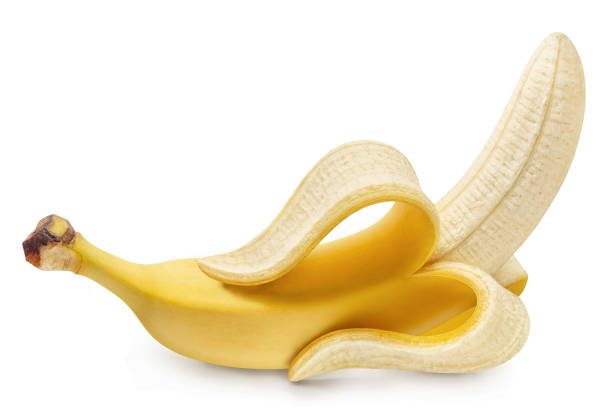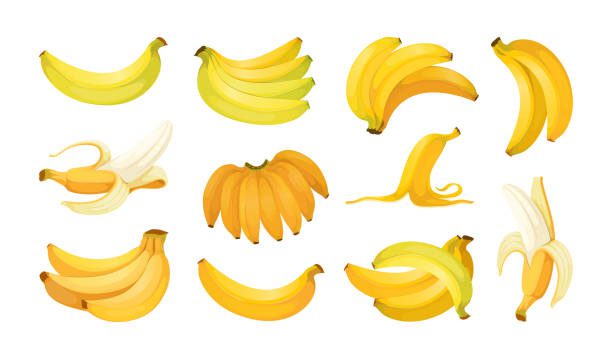This content is for informational and educational purposes only. Always consult a qualified healthcare provider.
Last Updated on February 5, 2024 by Grace Oluchi
Bananas are a fantastic source of carbs! They have a lot of energy-boosting carbohydrates that can help you power through your day. Whether you’re looking for a quick snack or a pre-workout boost, bananas are the perfect choice. With their high carb content, you’ll feel full and energized for hours. So, if you’re looking for a delicious and healthy way to fuel your body, look no further than the humble banana!
📋 Table of Contents
Let’s Talk About Bananas.
They are a popular fruit that people all around the world enjoy. The fruit is a good source of many important vitamins and nutrients, including potassium, vitamin C, and vitamin B6. They are also low in calories and high in fiber, making them a healthy snack option for people looking to maintain a healthy diet.
One of the most notable features about them is their unique shape. They are long and slightly curved, with a yellow peel and brown spots. The inside of a banana is soft and sweet, with a flavor that suits vanilla or caramel description.
Another interesting aspect of bananas is their versatility. You can eat them raw as a snack, added to smoothies or baked goods, or to make delicious desserts like banana bread or banana pudding. Bananas are also a popular ingredient in many savory dishes, such as curries and stews.
Bananas are an important crop for many countries around the world. They grow in tropical regions and are a major export for countries like Costa Rica, Ecuador, and the Philippines. They are also an important source of income for many small farmers, making them an important part of the global economy.
How Many Calories are in Various Sizes of Bananas?
The number of calories in them can vary depending on its size. Here are the approximate calorie counts for different sizes:
– Extra small banana (less than 6 inches long): 72 calories
– Small banana (6-7 inches long): 90 calories
– Medium banana (7-8 inches long): 105 calories
– Large banana (8-9 inches long): 121 calories
– Extra large banana (9 inches or longer): 135 calories
It’s important to note that these calorie counts are estimates and can vary slightly based on the ripeness of the banana and other factors. However, bananas are generally a low-calorie food and are a healthy snack option for people looking to manage their weight or maintain a healthy diet.
How Many Carbs are in the Fruit?
The number of carbs in a banana can vary depending on its size and ripeness. On average, a medium-sized banana contains about 27 grams of carbohydrates.
Most of the carbohydrates in a banana come from natural sugars, such as fructose, glucose, and sucrose. They are also a good source of dietary fiber, with a medium-sized banana containing about 3 grams of fiber.
While they are relatively high in carbohydrates when you compare it to some other fruits, they are still a healthy food choice. The natural sugars in bananas are accompanied by a range of important nutrients, including vitamins, minerals, and antioxidants, making them a nutritious addition to a balanced diet.
Unripe (green) Bananas Contain More Resistant Starch.
Unripe, or green bananas, are often overlooked as a source of nutrition. However, these ones actually contain more resistant starch than their ripe counterparts. Resistant starch is a type of carbohydrate that resists digestion in the small intestine and reaches the large intestine intact, where it serves as food for beneficial gut bacteria.
Resistant starch has been linked to a range of health benefits, including improved insulin sensitivity, lower blood sugar levels, and reduced risk of colon cancer. Additionally, resistant starch can help promote feelings of fullness and satiety, which may be beneficial for weight management.
Green bananas are also a good source of other important nutrients, including vitamin C, potassium, and fiber. While they are less sweet than ripe bananas, they can be enjoyed in a variety of ways, such as boiled, mashed, or sautéed.
It’s worth noting that some people may find that green bananas are more difficult to digest than ripe bananas, particularly if they have a sensitive digestive system. However, for most people, green bananas can be a healthy and nutritious addition to a well-rounded diet.
Bananas Contain Many Other Beneficial Nutrients.


Bananas have beneficial nutrients that make them a healthy addition to your diet. Here are some of the other key nutrients that bananas contain:
1. Potassium: Bananas are a rich source of potassium, a mineral that is important for maintaining healthy blood pressure, heart function, and muscle and nerve function.
2. Vitamin C: Bananas also contain vitamin C, an antioxidant that helps protect cells from damage and supports a healthy immune system.
3. Vitamin B6: Vitamin B6 is important for brain development and function, as well as for the production of red blood cells and neurotransmitters.
4. Magnesium: Bananas are a good source of magnesium, a mineral that is important for bone health, energy production, and muscle and nerve function.
5. Fiber: Bananas are high in fiber, which can help promote feelings of fullness and support healthy digestion.
6. Antioxidants: Bananas contain a range of antioxidant compounds, including dopamine and catechins, which may help protect against cell damage and reduce the risk of chronic diseases.
Overall, bananas are a nutrient-rich food that can provide a range of health benefits when consumed as part of a balanced diet.
The Key Takeaway.
Bananas are a low-calorie and nutrient-dense food that can provide a range of health benefits. On average, a medium-sized banana contains about 105 calories and 27 grams of carbohydrates, most of which come from natural sugars. They are also a good source of other important nutrients, including potassium, vitamin C, and fiber.
What are bananas?
Bananas are a fruit that grow on banana plants. They are one of the most widely consumed fruits in the world and are known for their sweet taste and high nutrient content.
What are the health benefits of bananas?
Bananas are a good source of fiber, potassium, vitamin C, vitamin B6, and other nutrients. They may help lower blood pressure, improve digestive health, and provide a quick source of energy.
How should I store bananas?
Bananas should be stored at room temperature until they are ripe, at which point they can be stored in the refrigerator to extend their shelf life. It’s also important to store bananas away from other fruits and vegetables, as they release a gas called ethylene that can cause other produce to ripen and spoil more quickly.
How can I incorporate bananas into my diet?
Bananas can be eaten on their own as a snack or used in a variety of recipes, such as smoothies, baked goods, and desserts. They can also be sliced and added to cereal, oatmeal, or yogurt.
Are there any risks to eating bananas?
Most people can safely eat bananas without any negative side effects. However, some people may be allergic to bananas or may need to limit their intake due to certain medical conditions, such as diabetes.

